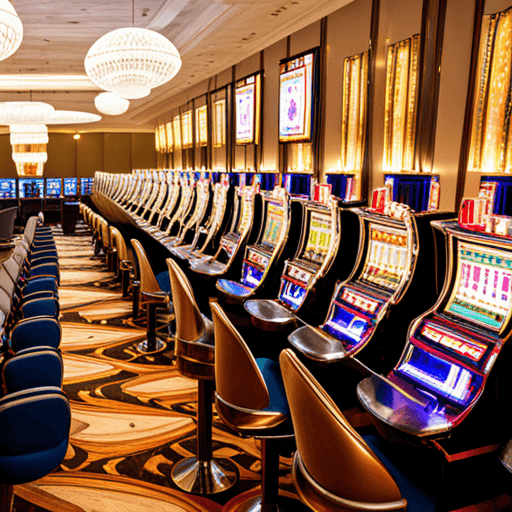The Connection Among Casino Games with Math
- emergingtechworld.co.uk
- 0
- Posted on

Casino games have captivated enthusiasts for ages, drawing them into a universe of adventure, chance, and wealth. From the sparkling lights of slot machines to the intense nature of poker tables, these activities offer a distinct mixture of entertainment and risk. However, beneath the surface of this glitz and finesse lies a complex connection of mathematics that influences every conclusion and decision made within the gambling establishment.
Understanding this relationship between casino games and math not only boosts the player’s journey but can also help players make wise decisions. Whether you are a occasional player or a avid fan, recognizing the mathematical principles at play can offer important understandings into chances, ratios, and approaches, ultimately affecting how one deals with these games of chance.
Mathematical Probability in Betting
In the sphere of gambling activities, mathematical probability plays a crucial role in assessing results and informing player decisions. Every activity has a distinct set of rules and a particular probability framework that affects its mechanics. KWIN For example, in activities like the roulette wheel, players must grasp the odds of hitting a particular digit or color. The likelihood of specific occurrences happening can be calculated, and this understanding can significantly influence betting tactics.
Players also need to be aware of the house advantage, which is the statistical benefit that gambling establishments hold over players in the long term. This advantage differs across different games. In 21, expert players can use tactics to lower the casino edge to as low as one percent, while in games like slots, the house advantage can be substantially larger. Understanding the casino edge allows gamblers to make educated decisions about which activities to play and how much to wager.
Furthermore, probability is fundamental in the principle of danger versus gain in betting. Every bet carries a particular danger factor, and players must consider the potential payout against that risk. Games like the poker game require players to not only calculate the odds of their own showing winning but also to assess the likelihoods of their rivals’ showings. By applying statistical principles to their strategy, players can boost their odds of winning and engage more strategically in the thrilling realm of casino games.
Expected Worth in Casino Games
When discussing gambling games, one of the basic ideas rooted in mathematics is the anticipated worth. This numerical measure assists gamblers understand the possible outcomes of their bets over a period. In basic terms, expected value (EV) determines the mean amount a player can expect to gain or suffer per bet if they were to play the activity many times. Each activity has its own EV, affected by the odds and the casino advantage, which signifies the advantage that the gambling establishment holds.
For instance, consider a game like the roulette game. The expected worth can be derived based on the specific wager made. If a gambler bets on a individual number, the payout is 35 to 1, but the true odds of success that bet are 1 in 37 (in Euro the roulette game). This leads in a detrimental expected value, showing that, on average, players will lose money over a period when playing this kind of bet. Grasping this concept allows gamblers to make better educated decisions about which activities and wagers may be more favorable.
Additionally, the exploration of expected value can lead to better money management. Players who understand the math behind their games are often able to set practical goals. By acknowledging their possible losses and gains, they can modify their playing strategies accordingly, which may enhance their total gaming experience overall. As a result, expected value serves as a critical resource for both novice and experienced players to steer through the frequently volatile character of gambling activities.
Approaches and Odds: The Arithmetic Behind Success
In casino games, understanding the odds is vital for participants seeking to boost their likelihood of winning. Each activity has its own specific set of odds that dictate winning performances, and these figures are often found in the rules of the game rules or payout tables. For case, in activities like 21, participants can boost their chances through strategies such as card counting, which relies on arithmetic concepts to gain an advantage over the establishment. By educating themselves with the probabilities, gamblers can make more educated determinations on when to place bets and when to quit.
Furthermore, the idea of expected value has a critical part in casino strategies. Average outcome determines the mean outcome of a bet over a period, allowing gamblers to assess whether a specific stake is valuable taking. For instance, slot machines have a fixed payout percentage, which can suggest the expected payout a participant can expect on their wagers. By choosing activities with better average outcomes, gamblers can lessen the house edge, maximizing their potential returns in the future.
Finally, successful participants often adopt a mix of luck and mathematical strategy to improve their gaming experience. While chance is unpredictable, managing a betting strategy based on math insights can lead to more advantageous situations. By employing techniques such as budgeting and picking games, participants can apply math to handle the unpredictable nature of gaming, making the most of their time and money at the gaming tables.